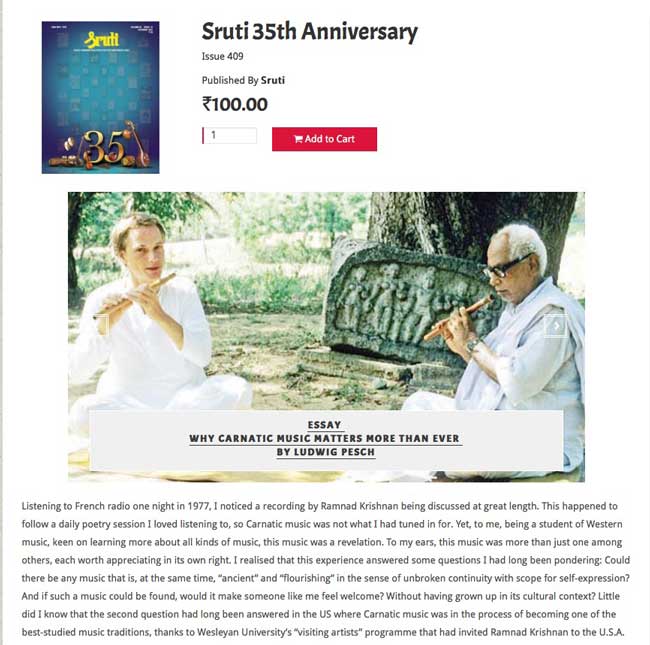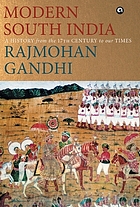
by Ludwig Pesch
For this musicologist and author, there are good reasons to believe that Carnatic music matters, perhaps more than ever and almost anywhere in the world. So why not perform and teach it in the service of better education for all, for ecological awareness or in order to promote mutual respect in spite of all our differences? And in the process, get “invigorated and better equipped to tackle the larger issues at hand”.
Published by Shankar Ramchandran on behalf of Dhvani Ohio | Read or download the full article (PDF, 800 KB, updated 19 June 2021):
Attribution-NonCommercial-ShareAlike 4.0 License
Related post: A brief introduction to Carnatic music >>
Carnatic music as experienced today: its social and political context in a nutshell

As the nineteenth century closes and in January 1901 a distant Empress dies, the onlooker recognizes an advance across South India in education, a growing print culture, and an emerging middle class of small landholders, doctors, lawyers, college teachers, writers, government employees and merchants.
In the realm of ideas, the onlooker discerns a few currents. One is of nationalism. Another is for reform in traditional customs and exclusions. A third is of linguistic pride. And a fourth pursues equality among castes.
Rajmohan Gandhi in Modern South India: A History from the 17th Century to Our Times , p. 236
This is a Dravidian story, and also more than that. t is a story involving four centuries, the seventeenth, eighteenth, nineteenth and twentieth, yet other periods intrude upon it… [cover notes]
Information about the persons, items or topics
Research & Custom search engines
The Oxford Illustrated Companion to South Indian Classical Music
Learn & practice more
A brief introduction to Carnatic music (with music examples and interactive map)
Bhava and Rasa explained by V. Premalatha
Free “flow” exercises on this website
Introduction (values in the light of modernity)
Video | Keeping tala with hand gestures: Adi (8 beats) & Misra chapu (7 beats)
Why Carnatic Music Matters More Than Ever
Worldcat.org book and journal search (including Open Access)
Tradition and change: integrity matters, even in the digital age!
In this course, new exercises are introduced with due respect for integrity – respect for a music that has evolved over several centuries (in its present concert format) and far beyond (as regards thought provoking concepts that kindle long-term immersion).
Some of the exercises and methods facilitate continuous or frequent practice among learners who struggle with multiple commitments.
So this is all about the kind of active involvement in a tradition wherein music is simply indispensable for leading a fulfilled life. This also explains why long-term commitment is compatible with socio-economic and scientific change. This calls for imagination, a fact reflected in text books that highlight the importance of manodharma sangita, a concept reaching beyond “improvisation” as understood in Western music.
We may therefore safely conclude that both commitments, learning and teaching, are by no means determined by an individual’s station in life.
For this reason, lessons may either be shared regularly and personally (by a guru, in the past largely informally within a household known as gurukulam), or without personal contact by emulating an inspiring exponent – alive or otherwise (manasa guru, manasika guru). Many musical biographers and hagiographers share a conviction that a learner’s choice for either approach – personal or indirect lessons – tells little if anything about an accomplished musician’s status.
In short, this is all about dedication and integrity, even in the digital age!